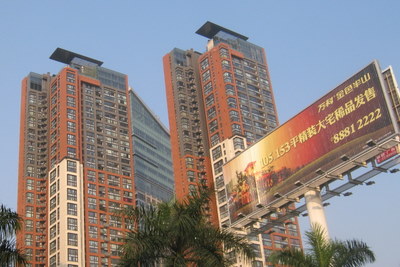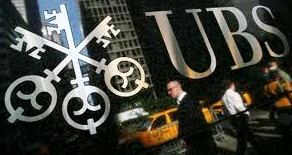
Translated by Andrew Vanburen from a Chinese-language piece in Guangzhou Daily
WHAT SELLS IN PEORIA used to be the gold standard for gauging success of failure in the market.
But these days market watchers are increasingly interested in what sells for the nouveau riche Chinese on buying sprees in Hong Kong and Paris for baby formula and handbags, respectively, among a worldful of other wares.
Of equal or greater significance is what are qualified foreign institutional investors (QFIIs) buying in China’s stock market?
It tells a lot about what sectors are hot, and what aren’t.
First of all, let’s review a bit of background about China’s qualified foreign institutional investor scheme, first implemented in 2002.
The decade-old program was designed to permit licensed overseas investors to trade yuan-denominated A-shares in both Shanghai and Shenzhen, the locations of China’s two stock markets.
B-shares have been open to foreign investors all along, but are typically of much poorer quality and return potential.
As of mid-2011, the country’s bourse watchdog – the China Securities & Regulatory Commission (CSRC) – said there were over 100 licensed QFII investors operating in China with an aggregate quota of over 21 billion usd to invest in the country’s capital markets under the QFII program.
However, the foreign parties have recently been not only clamoring for a bigger piece of the PRC pie, but a bigger pie to boot.

They argue that the current investment quotas on QFII funds are insufficient to meet growing global interest and demand, and have applied to widen the amount they are allowed to inject into PRC-listed equities.
The number of participants as well as the overall investment quota allowed under the QFII plan is currently under review as per the content of the application from the foreign parties.
Additionally, it is quite likely that the QFII current ceiling of one billion usd per party would likely be adjusted upward.
As of May 8, seven QFIIs were newly approved to receive a total 810 million.
This means the authorizing party, the State Administration of Foreign Exchange (SAFE), was pressing harder on the gas pedal, as this current approval batch was higher than recent authorizations.
It’s not necessarily the big-name blue chips that are attracting the attention of foreign investors, but instead anything that is underperforming on the valuation front.
In fact, in a classic case of chicken or egg, it appears that the sudden appearance of several price-gutted A-shares in China is helping to spur on the arrival of new QFIIs on the scene as well as their lobbying for an upward revision to their total allowable investment quota.
And due to the intensifying interest among QFIIs in the sudden plethora of bargain basement shares, the approval process for allowing China’s massive pension fund to more fully engage in the domestic bourses will almost certainly be sped up in order to keep up with the Joneses (read: QFIIs).
Here’s a look at some of the prized possessions of QFIIs in China these days.

Topping the list is UBS, who also happens to be China’s biggest QFII to date, with an investment quota of 790 million usd.
The Zurich-based financial group currently owns 83.1 million shares in the PRC’s top residential property developer China Vanke (SZA: 000002).
China’s property market has been hard hit these past two years by excessive overleveraging as well as very weak buying sentiment, often exacerbated by falling unit prices, so UBS must have done its homework and either expect a bounceback or be willing to patiently wait out the storm until it can recoup its investment.
Even more intriguing is that the Swiss firm increased its holdings in Vanke already this year by around 10%.
Morgan Stanley has also been anything but gun-shy in China, boosting its stakeholding by around 3% this year to 52.0 million shares in leading electronics retailer Suning Appliance Co (SZA: 002024).
The US-based investment bank is surely betting on Mainland China finally breaking its addiction to exports and fully tapping its 1.3 billion-strong domestic consumer juggernaut.
Perhaps the foreigners are onto something, putting so many eggs in the China domestic consumption basket.
The world is so used to Made in China stamped on seemingly everything taking up space in overseas shopping malls.
But with the global slowdown and Beijing’s push to rely less on external demand, these same foreigners are beginning to realize that when it comes to making money in foreign capital markets, “Made in China” might also make sense for now.
See also:
HALF HEARTED: 50% Of PRC Firms Expect Weaker 1H
ALL BLACKS: China’s Listed Brokerages All Profitable
NEW KID ON BLOCK: 21 A-Shares In Red; 4 In Hot Water
KINGS OF THE HILL: 12 Banks Produce Over Half Of All Listcos’ Profit







